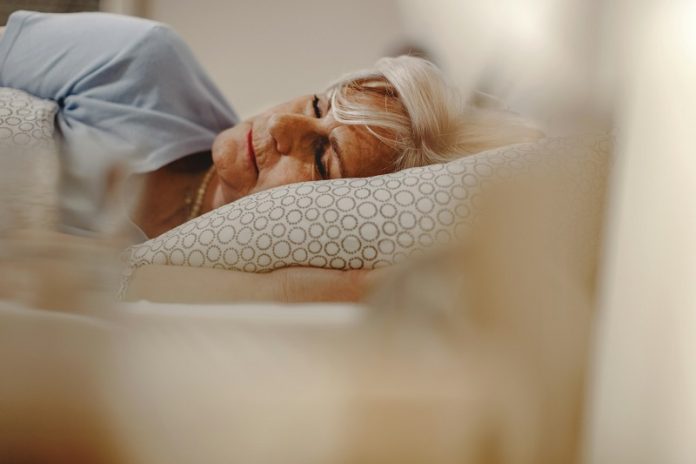
Older women who become increasingly sleepy during the day may face a higher risk of developing dementia, according to a new study published on March 19, 2025, in Neurology, the journal of the American Academy of Neurology.
While the study does not prove that daytime sleepiness causes dementia, it does show a strong link between changes in sleep patterns and the development of cognitive problems in women over 80.
Researchers followed 733 women, with an average age of 83, who showed no signs of dementia or mild cognitive impairment at the beginning of the study. These women were tracked over five years to see how their sleep patterns and brain health changed over time.
At both the start and the end of the study, participants wore wrist devices for three days. These devices helped scientists monitor their sleep, daytime naps, and daily sleep-wake cycles (circadian rhythms). Based on this data, the women were sorted into three groups depending on how their sleep patterns changed over the five years.
The first group, making up 44% of the participants, had stable sleep or slight improvements. The second group, 35% of the women, showed a decline in nighttime sleep quality and duration, along with slightly more napping and worsened sleep rhythms.
The final group, 21% of participants, experienced increased sleepiness. This included more sleep both during the day and night, as well as more disrupted daily sleep cycles.
By the end of the study, 164 women (22%) had developed mild cognitive impairment and 93 women (13%) had developed dementia. Among those in the stable sleep group, only 8% developed dementia. In the group with declining nighttime sleep, 15% developed dementia. But in the group with increasing sleepiness, 19% were diagnosed with dementia.
Even after accounting for other factors like age, education level, race, and medical conditions such as diabetes and high blood pressure, the researchers found that women who became sleepier over time had twice the risk of developing dementia compared to those whose sleep remained stable.
Dr. Yue Leng, lead author and sleep researcher at the University of California, San Francisco, said, “Sleep is essential for brain health. It helps our brains recharge, supports clear thinking, and keeps our memories strong. But we still don’t fully understand how sleep changes as we age and how these changes affect our risk of dementia.”
She added that this study shows how sleep and cognitive health are closely connected in the later years of life, especially for women in their 80s. The study also reveals how sleep habits can shift significantly over just five years in this age group.
Interestingly, while increasing sleepiness was linked to higher dementia risk, poor nighttime sleep alone was not. This suggests that simply sleeping less or having lighter sleep at night isn’t as strongly connected to dementia as becoming more sleepy overall, both day and night.
The findings support the idea that changes in sleep patterns—particularly increased sleepiness—could be an early warning sign of cognitive decline. However, because most participants in the study were white, the results may not apply to all populations, and future studies should include more diverse groups to confirm these findings.
This research was supported by the U.S. National Institutes of Health and the National Institute on Aging. It adds to growing evidence that monitoring sleep patterns may help identify people at risk of dementia and lead to better prevention strategies in the future.
If you care about brain health, please read studies about how the Mediterranean diet could protect your brain health, and blueberry supplements may prevent cognitive decline.
For more information about brain health, please see recent studies about antioxidants that could help reduce dementia risk, and Coconut oil could help improve cognitive function in Alzheimer’s.
The research findings can be found in Neurology.
Copyright © 2025 Knowridge Science Report. All rights reserved.



